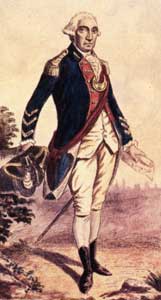17 August 2006 Edition
Remembering the Past

Napper Tandy
BY
SHANE MacTHOMÁIS
To many people, the name of the leading United Irishman James Napper Tandy is one they hear or sing in the song The Wearing of the Green. Apart from that, he is often condemned by events to be eternally in the shadow of others such as Wolfe Tone, Russell and Lord Edward Fitzgerald. He has sometimes been dismissed as a drunk, a gossip unsuited to conspiratorial activity, another Irish failure without the saving grace of martyrdom. But he deserves much more. Napper Tandy was the link between the upper class Protestant leaders of the United Irishmen and the Catholic rank and file.
Born the son of a Dublin ironmonger, Tandy started life as a small tradesman. Turning to politics, he became a member of the corporation of Dublin - always a hotbed of radical republicanism - and was popular for his denunciation of municipal corruption and his proposal of a boycott of English goods in Ireland.
In April 1780, Tandy was expelled from the Dublin Volunteers for proposing the expulsion of the Duke of Leinster, who was deeply distrusted by radical Volunteers. He was one of the most conspicuous of the small revolutionary party, chiefly of the shopkeeper class, who formed a permanent committee in June 1784 to agitate for reform, and called a convention of delegates from all parts of Ireland, which met in October 1784.
In 1791 he and Theobald Wolfe Tone founded the Society of the United Irishmen, of which he became the first secretary. His opinions, strongly influenced by French revolutionary ideas, brought Tandy to the notice of the British government.
Sympathy for the ideals of Liberty, Equality and Fraternity was spreading across Ireland. A meeting of some 6,000 people in Belfast voted a congratulatory address to the French nation in July 1791. In the following year, Napper Tandy took a leading part in organising a new military association in Ireland modelled after the French National Guards. It professed republican principles, and on their uniform its members wore the emblem of liberty, instead of the crown, surmounting the Irish harp.
Tandy also took the oath of the Defenders, a Catholic society whose agrarian and political action had been increasing for several years, with the purpose of bringing about an amalgamation between the Defenders and the United Irishmen.
When the government proscribed the United Irishmen in 1792, Tandy travelled to America. There he continued his United Irish activities and met the minister plenipotentiary of the French republic, citizen Adet.
In February 1798 he went to Paris, where a number of Irish revolutionaries, the most prominent of whom was Wolfe Tone, were assembled and planning a rebellion in Ireland to be supported by a French invasion.
Tandy accepted the offer of a corvette, the Anacreon, from the French government and sailed from Dunkirk accompanied by a few United Irishmen, a small force of men and a considerable quantity of arms and ammunition for distribution in Ireland. He arrived at the isle of Arranmore, off the coast of County Donegal, on 16 September 1798.
The locality, however, was sparsely populated and showed little enthusiasm in joining with the expedition. Tandy took possession of the village of Rutland, where he hoisted a flag and issued a revolutionary proclamation.
But on learning of the defeat of Humbert's expedition, and that Connaught was now subdued, the futility of the enterprise was soon apparent.
Back on board the Anacreon, Tandy sailed around the north of Scotland to avoid the English fleet. He reached Bergen in safety, having brought with him an English ship captured along the way. Tandy then made his way with three or four companions to the free port of Hamburg but a demand from the English government to detain the fugitives was acceded to despite a counter-threat from the French Directory.
Tandy remained in prison until April 1801, when he was tried, pleaded guilty, and was sentenced to death. He was reprieved, however, and allowed to go to France, where he was kept busy working on a scheme to invade Louisiana - a cover for a new invasion of Ireland. But he died on 24 August 1803.
Tandy was given a huge funeral in Bordeaux. But then he slips from history, an undeserved fate for such a colourful, brave, and committed United Irishman and patriot.


